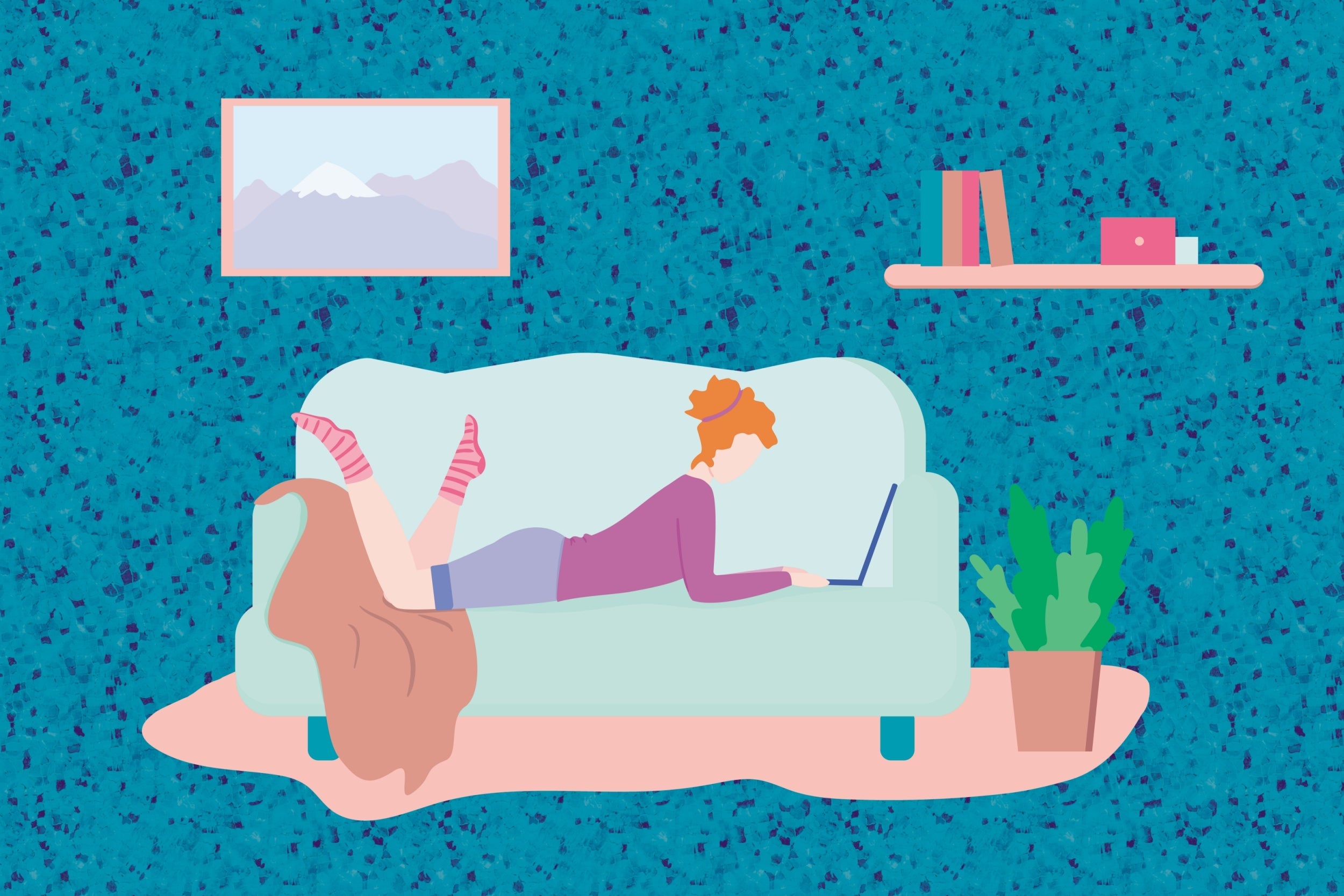‘What really matters to me now?’: How to maintain motivation during coronavirus pandemic
With such a disruption to our lives it is no wonder that many of us are struggling to motivate ourselves, writes Jane E Brody. We can motivate ourselves again, but we first need to work out what really matters

Your support helps us to tell the story
From reproductive rights to climate change to Big Tech, The Independent is on the ground when the story is developing. Whether it's investigating the financials of Elon Musk's pro-Trump PAC or producing our latest documentary, 'The A Word', which shines a light on the American women fighting for reproductive rights, we know how important it is to parse out the facts from the messaging.
At such a critical moment in US history, we need reporters on the ground. Your donation allows us to keep sending journalists to speak to both sides of the story.
The Independent is trusted by Americans across the entire political spectrum. And unlike many other quality news outlets, we choose not to lock Americans out of our reporting and analysis with paywalls. We believe quality journalism should be available to everyone, paid for by those who can afford it.
Your support makes all the difference.Maintaining motivation is becoming an increasing challenge for many people slogging through life curtailed by the coronavirus pandemic.
Initially facing weeks confined to our homes, we tackled, with some satisfaction, long-neglected chores like weaning closets of clothes that no longer fit our bodies or lifestyles, reorganising drawers and emptying pantries and refrigerators of forgotten foodstuff.
But as the weeks morph into months with no clear end in sight for much of the country, the ennui of Covid-induced isolation can undermine enthusiasm for such mundane activities, however rewarding they may seem. I’m among a growing number of people I’ve spoken with who admit to a lack of motivation for tasks they know need doing but now are unable to face.
For some, even working out can seem daunting when preferred activities like swimming or spin classes are no longer accessible.
Too many days I wake up wondering why I should bother to get up, a feeling contrary to my normal determination to use every waking moment to accomplish something worthwhile.
A friend schooled in Buddhist principles suggests that during these trying times I should cut myself some slack. But a laidback approach doesn’t suit my goal-oriented, people-centred personality. I chose instead to consult a former New York Times colleague, Daniel Goleman, a psychologist and author of Emotional Intelligence.
Goleman explains that there are two kinds of motivation: extrinsic and intrinsic. Extrinsic motivation refers to acts done to receive an external reward or outcome like wealth, power or fame, or in some cases to avoid punishment.
Intrinsic motivation involves behaviours that are done for their own sake and are personally rewarding, like helping other people, participating in an enjoyable sport or studying a fascinating subject. With intrinsic motivation, inspiration comes from within a person. It tends to be more forceful and the results more fulfilling.

“The stay-at-home edict has pushed so many of us into an external motivation mode that is making us face something that feels like lethargy and meaninglessness,” Goleman says.
“At the same time,” he adds, “It’s a ripe opportunity to think about what really matters to us.” He cites the inspiring outlook of legendary Austrian neurologist and psychiatrist Viktor E Frankl, who survived four years in Nazi concentration camps sustained by a deep sense of purpose. Frankl’s rediscovered masterpiece, Yes to Life: In Spite of Everything, just published in English, offers a path to finding hope even in these dark times. It urges people to reflect on what really matters to them and search for ways to act on what is most meaningful.
“Doing what’s meaningful – acting on what really matters to a person – is the antidote to burnout,” says Goleman, who wrote the introduction to Frankl’s book. He suggests to those who are feeling bereft of motivation: “Face what’s happening. What does it mean to me? What really matters to me now? Is there a way I can act upon what’s meaningful to me?”
He reports that people whose emotional outlook is focused on the left side of the brain’s prefrontal cortex, which is activated by altruistic behaviour, tend to be more positive
Dr Vivek H Murthy, former surgeon general of the United States and author of the recently published book Together, explained this month on The Brian Lehrer Show on public radio: “Our fundamental worth is intrinsic. It’s based on kindness, compassion and generosity, the ability to give and receive love. Service to others has a powerful effect on how we feel about ourselves as well as on how it makes others feel. There are many opportunities to serve, to switch our focus from ourselves to others.”
As Goleman put it, “The news of the day constantly provides an unconscious reminder that we are all mortal. This can result in negative thought patterns – harsher judgments, blaming the victim, greediness and us-versus-them thinking. But if we consciously reflect on our own death, none of this matters. What really matters is the people we love and helping people.”
Richard J Davidson, professor of psychology and neuroscientist at the Centre for Healthy Minds at the University of Wisconsin-Madison, has demonstrated that “when individuals engage in generous and altruistic behaviour, they actually activate circuits in the brain that are key to fostering wellbeing”. In other words, caring for other people can be its own reward.
He reports that people whose emotional outlook is focused on the left side of the brain’s prefrontal cortex, which is activated by altruistic behaviour, tend to be more positive. They’re more likely to become frustrated and irritated when their goals are thwarted, but this helps to mobilise their energy and ability to overcome the obstacles getting in the way of achieving their goals.
On the other hand, the right side of the prefrontal cortex acts as what Davidson calls a behavioural inhibitor that prompts people to give up more easily when the going gets tough. Such people tend to be overly cautious, fearful and risk-averse as well as not highly motivated.

Fear that we may never escape the threat of the new coronavirus can lead to feelings of futility. What is the point of doing anything if it will all come to naught in the end? Such thinking can certainly thwart motivation and result in a joyless, unrewarding existence. Instead, adopt a more positive approach by selecting goals that are attainable but still present a challenge.
For the many millions of us now limited by Covid-19, motivation might best be fostered by dividing large goals into small, specific tasks more easily accomplished but not so simple that they are boring and soon abandoned. Avoid perfectionism lest the ultimate goal becomes an insurmountable challenge. As each task is completed, reward yourself with virtual brownie points (not chips or cookies!), then go on to the next one.
But even more important than personal tasks you consider tackling, think about what you could do for other people within the constraints of social distancing or lockdown. If you can, contribute money to efforts to get more food, especially nutritious food that too often now goes to waste, to people who don’t have enough to eat as well as to our essential workers.
Perhaps bring a homemade meal or order a meal to be delivered to a friend or neighbour who is reluctant or unable to go beyond the front door. Susan McGee called from Bethesda, Maryland, to ask for a good recipe for cabbage soup. She had made pea soup for a 107-year-old friend who, after profuse thanks, said she really loves cabbage soup.
That got me thinking. I too could make my turkey-cabbage soup for a recently widowed neighbour who, while mourning the loss of her husband, is now having to weather coronavirus isolation all alone.
© The New York Times
Join our commenting forum
Join thought-provoking conversations, follow other Independent readers and see their replies
Comments